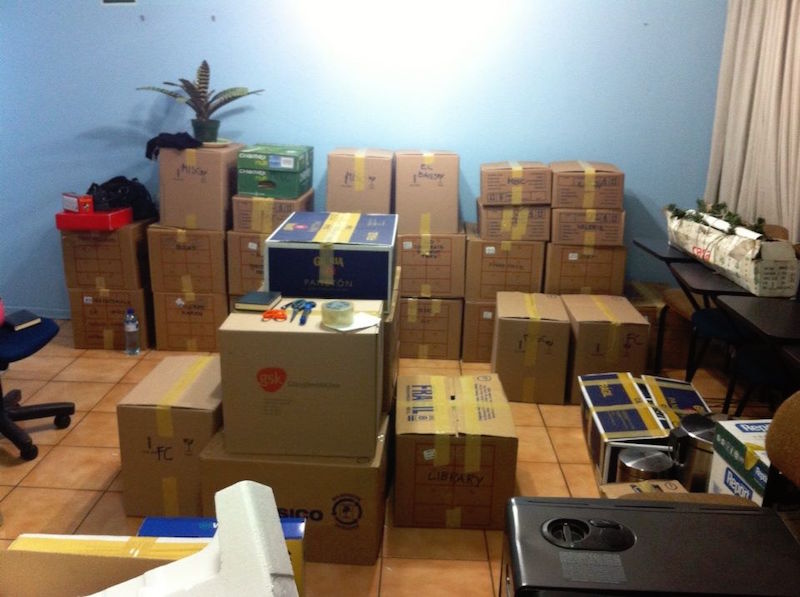
We thank Jennifer Bradley for this precious article about how to balance love, work, life and family when relocating internationally.
Are you relocating internationally with your spouse or partner for an expatriate assignment? Do you have questions about how moving will affect you personally and professionally? Are you in your new location and wondering how to start over or even if you should?
Although work life issues are a major concern for expatriates relocating internationally, the majority of assignee’s partners do not receive career assistance as part of an employer sponsored relocation package. Researcher Yvonne McNulty found that more than half of the accompanying spouses in her group were concerned that relocating internationally would jeopardize their careers. In a recent report from the Permits Foundation about two-thirds of couples no longer had dual career status during an expatriate assignment.
Moving and Your Career
In a mini-survey of work-life issues for expatriate accompanying spouses relocating internationally that I did in December 2009, the majority (85%) reported that international relocation affected their career development.
Some of the work life issues identified by the participants in this survey included:
- Change in employment status due to a career “on hold” or a lateral career move
- Need for career reassessment and/or find new career goals
- Changes in roles and balance within the family
- Moving from a position of financial independence to one of financial dependence
- Loss of earnings overall
- Limited opportunities in host location
- Need to be proactive
Not all of these issues may be relevant to your personal situation. Your needs and priorities will vary with your career and personal goals, the phase of your career, your family situation, the length of your assignment, your location, the work and travel demands of your spouse/partner and many other factors. Whatever your situation, it is important that you consider how relocating internationally affects you both personally and as a couple. For some couples this may be the first time in their relationship that they are a single earner family. Family and career issues are two of the major contributing factors in failed assignments. Help yourself to make your experience a successful one by considering some of the issues ahead of time.
Questions to Consider
Generating questions is a great way to begin to identify what is most important for you and how you can prepare relocating internationally. Below is a list of general questions to get you started. Add to the list according to your family’s situation and your personal goals.
Questions for You as a Couple
- What opportunities are available in our new location?
- What goals do we have in common for this assignment?
- How will we address any in our financial status, such as the loss of one income?
- How will our current family roles and responsibilities change?
- What steps will we take to facilitate ongoing communication about the changes that go with international relocation?
Questions for Individual Accompanying Spouses/Partners
- What do I currently get from my work-related activities and roles? (E.g. financial or other rewards, validation, opportunities to contribute, solve problems, social and professional network, intellectual stimulation, structure of time, etc.)
- Of these, which do I most want to keep in my life?
- What new approaches can I use to satisfy these needs and wants?
In addition to these general questions, you will have questions that are specific to your situation and the culture and employment practices in your host country. For example, if your goal is to get employment, getting a work permit may require legal assistance. Do you know how to obtain this? You will also need access to local knowledge. It is crucial to find a cultural informant to help you understand how, for example, recruitment and employment practices may be different in your host culture.
Losses and Gains
When international relocation is on the horizon, as the accompanying spouse it’s easy to neglect your own needs as you focus your time and energy on the myriad of tasks that are required to plan and execute a move overseas. Whatever your personal goals for your work and your life, finding opportunities to meet your own needs will benefit both you and your family.
Relocating as an accompanying spouse may involve both voluntary and involuntary components. It is voluntary in that you choose to relocate. If you leave your current career behind, and work opportunities are not available in your host location you may feel that you have less choice regarding employment. It is important to acknowledge the losses and the gains. At the same time, you can be proactive about finding what you need.
Be the Author of your Story
In her book, The 12 Secrets of Highly Creative Women, Gail McMeekin writes the following:
No one else can grant you a fulfilling life. You are the author of your own story. Is it an adventure story or a tragedy? You can redirect the plot at any time.
Building a new life in a new culture can be challenging, especially in the absence of your usual support network. What choices should you make? What can you do to make the most of the opportunities available?
Begin by Building your Personal Positive Portfolio
Technological advances and changes in the nature of work mean that in some fields it is increasingly possible to have a portable career. Whether or not your goals include the pursuit of employment, you can be proactive in creating a life that is fulfilling for you personally.
Current research in the field of positive psychology provides some useful guidance. In her book, Positivity, psychologist Barbara Frederickson, argues that we can shape our happiness by what we do. This begins with self-study to increase awareness of when we experience positive emotions. Using this information, we can monitor our emotions on a daily basis and take action to increase opportunities to experience positive emotions. According to her research, negative emotions have a greater impact. Therefore we need to have more positive emotional experiences than negative emotional experiences. She recommends a ratio of three to one to make a difference. This may not be as difficult as it sounds. Begin with small steps on a daily basis as explained in the example below.
Using the metaphor of the artist’s portfolio, Frederickson recommends creating a personal positive portfolio. This is unique to you and derived from self-knowledge of what generates positive emotions for you personally. This portfolio may or may not include work-related activities. It is your personal collection of reminders of what triggers different positive emotions, such as joy for you.
In the portfolio that you build, you can chose to include text, words, images, photographs, drawings, objects, music, or anything that will remind you of the positive emotion you want to focus on. The example below gives you instructions about how to create an interest portfolio by paying attention to things that interest you in your everyday experience.
Your Personal Portfolio Part 1: Your Interests
International relocation may be an opportunity to connect with latent and develop new ones. Begin to build your interest portfolio by trying some of the exercises below. This will help to discover what you would like to include in your interest portfolio. You never know, these ideas might lead to a future career that you have never even considered before.
Read the following questions and make some notes. Just write what comes to mind. You can evaluate later.
- When do you experience curiosity and what are you curious about?
- What would you most like to learn more about?
- What do you notice first when you enter a bookstore or browse through your favorite magazines?
- In the past 6 months, list books your have read, movies you have watched, etc.
- Gather some old magazines and create a collage made from the magazine pictures that you like.
- Go for a walk and bring a digital camera with you. Take photographs of things that catch your attention. Assemble your images and write down any themes you notice.
Once you have completed some of the exercises above, review them. Do you notice any themes? Share your discoveries with a trusted friend, mentor, or coach. Get their feedback.
Gathering items for your personal positive portfolio is a great first step. Remember that you are the author. This portfolio is one thing is completely under your personal control. You can change it at any time. Check out the resources list below for other ideas that might be helpful.
Jennifer Bradley specializes in work-life issues. She offers individual and group coaching that helps people gain clarity and move forward more quickly and with less stress. She is a certified coach (ICF) and a registered occupational psychologist (U.K.). More information at https://careeroptionscoach.com/
Mai 2010
RESOURCES
Positivity. (2009). by Barbara Fredrickson. Three Rivers Press.
A Career in Your Suitcase. (2008) 3rd ed. by Jo Parfitt.
Get a Life not a Job. (2010) by Paula Caligiuri. FT Press.
Building a Portfolio Career: How to create a portfolio of roles to suit your work and life. (2009) 2nd. ed., by Colin McCrudden, Adrian Bourne, and Christopher Lyons.
Career Distinction: Stand out by building your brand. (2007), by William Arruda and Kirsten Dixson. John Wiley & Sons, Inc.
A Portable Identity: A womens guide to maintaining a sense of self while moving overseas. (2005), by Debra Bryson and Charise M Hoge. Transition Press International.
Reinvention: How to make the rest of your life the best of your life. (2009), by Brian Tracy. Amacom.
Families in Global Transition: https://www.figt.org
Society for Intercultural Education and Research: https://www.sietarusa.org/




